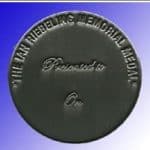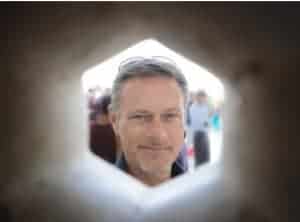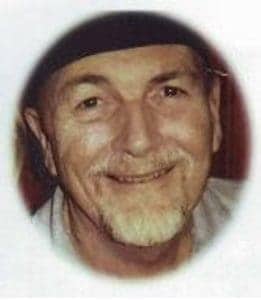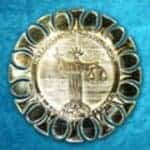National Branch Awards
The Ian Riebeling Memorial Medal

This medal was struck in honour of the late Ian Riebeling, a forensic document examiner with Forensic Science SA in Adelaide. Ian passed away suddenly in February of 2001 and was an active member of the Society. He had held the position of President of the South Australian Branch of the ANZFSS and many other positions in the preceding years.
The medal is awarded every two years, to the best new practitioner (general ANZFSS member) who presents either a paper or poster at the ANZFSS International Symposium. The Ian Riebeling Memorial Medallist is selected from the pool of oral and poster presenters who are within their first five years, or part-time equivalent, of their employment as a forensic practitioner. Presenters need to have declared this at the time of their registration.
In addition to the medal, a monetary prize of $1,500 is awarded by Ian’s family so the winner can advance their professional skills by attending the following ANZFSS Symposium, or an equivalent conference.
Assessment
The assessment criteria are not limited to but will include the following:
- Quality of the presentation
- Content of the presentation
The Symposium Organising Committee will nominate a selection panel to assess presentations by eligible members, which will be chaired by the Scientific Program Chair, and may include Discipline Chairs.
Conditions
The recipient must provide bank account details to the ANZFSS Treasurer for the transference of funds. At this time, the recipient must also provide a plan for the expenditure of the funds, whether that is attendance at the next ANZFSS Symposium, or nominating an alternate conference or professional development activity occurring within the following two years, for the funds to go toward.
Following attendance at the nominated event, the recipient must provide to the ANZFSS Council (via the ANZFSS secretary) a short (1 page) summary of the outcomes of the development activity, highlighting how it benefited the awardee. This may be published in the ANZFSS newsletter and sent to Ian’s family. Copies of receipts for expenditure must be provided to the ANZFSS Treasurer.
The recipient will consent to the use of their imagery by the Society in its publications and/or marketing activities.
Award recipients are responsible for managing all of their own booking and travel requirements, including medical and travel insurance.
Previous winners
2018: Mickayla Dustin (ESR, New Zealand): Further persistence studies of PDMS condom lubricants
2016: Felicity Koens (Australian Federal Police): A background survey of polymers in the act – diversity in isotopic abundance values
2014: Danielle Butzbach (Forensic Science SA): Post-mortem production of paracetamol via degradation of its metabolite
2012: Ashleigh Fox (University of Auckland): Exploring the recovery of mRNA and DNA from chemically treated finger-marks in blood
2010: Lauren Parsons (ESR, New Zealand): Low copy number DNA analysis and document examination: impact of technologies on respective analyses; The New Zealand national DNA database: Simplified DNA profiling using the Whatman FTA elute card and Hamilton Nimbus robotics
2008: Nicole Walker (NZ Police): Distinguishing between expirated blood and impact spatter using chemical and physical methods
2006: Kaye Ballantyne (Victoria Police Forensic Services Department & La Trobe University): Increased profiling success from WGA.d degraded DNA; WGA to assist STR genotyping of trace DNA
2004: Cameron Scadding (Curtin University of Technology): Forensic identification and provenance establishment of oxy-acetylene cutting micro debris from crime scenes
2002: Carolyne Bird (Forensic Science SA): Low temperature infra-red fluorescence for the discrimination of inks
Please contact the SA branch or anzfss_executive@outlook.com for more information.
The Bryan Found Memorial Symposium Award

Dr Bryan Found was a true champion of forensic science, incredibly passionate for improvement and development. As an internationally respected caseworker, researcher, and the inaugural Chief Forensic Scientist of VIC Police, across a 29-year career, he instigated significant progress in many areas of document examination, pattern evidence and education. His impact in bringing cognitive issues to the fore will be felt for years to come, and his influence on document examination globally has been phenomenal. Bryan was a long-standing member of the VIC Branch, former President, and the Chair of the Organising Committee for the 2008 Melbourne Symposium – arguably the first of the new breed of successful symposia. He was also responsible for the infamous cask wine, now an ANZFSS tradition. He was accepted as a Life Member of the Society just weeks before his sudden death at home on 23 October 2016.
In memory of Bryan, the Found family has established a Memorial Scholarship in his name that is awarded to a graduate or post-graduate student to attend the Symposium. The award is open to full-time students in a graduate or postgraduate course in a topic related to forensic science. Please contact the vicbranch@anzfss.org for more information.
Criteria:
The selection criteria are not limited to, but will include, the following:
- The applicant is an enrolled full-time student in a graduate or postgraduate course in a topic related to forensic science. Research or study programs aimed at improving and/or developing forensic science in the areas of validity, cognitive factors and education will be prioritised, but any student in any area of forensic science may apply.
- The successful applicant will be required to provide an article for the ANZFSS newsletter summarising their experiences at the Symposium.
- The applicant may be required to make a presentation to the Symposium either on the benefits of the award or their research.
The Award will consist of $2500 to be used to fund the successful applicant’s attendance at the ANZFSS Symposium in the year of awarding.
If no suitable application is received the Award may not be presented, or may be otherwise distributed at the discretion of the family.
| Year | Recipient | State |
| 2023 | Ciara Devlin | NSW |
| 2018 | Bethany Growns | NSW |
The Allan Hodda Memorial Award

Allan was a well-known and respected scientist and individual. He was instrumental to the development of the NSW Branch as President, Vice-President, Secretary, Public Officer and Life-Member. In 2004, he received the National President’s Medal for his services to the Society. For many years Allan was a forensic toxicologist at the Division of Analytical Laboratories in Sydney. His professional credentials and focus on quality and integrity were greatly appreciated by the forensic science community, as demonstrated by his various executive memberships, including on the Panel of Advisers of the NIFS and on NATA’s Forensic Registration Advisory Committee. His dedication to training and education were also shown by his organisation of the annual NSW Branch seminar ‘Inside the Forensic World’ and his association with the UTS. Allan was a true gentleman and possessed a very fine sense of humour.
In memory of Allan, this award is awarded to a member who can best demonstrate how they will personally and professionally benefit from an opportunity to travel to any destination to further their own study, attend a notable forensic meeting or visit a laboratory. This award is open to General, Life and Student Members. Other reasons for travel, in accordance with the intent of the award, will be considered. Recipients will be required to present at that Symposium. Please contact the NSW branch or anzfss_executive@outlook.com for more information.
Criteria
The selection criteria are not limited to but will include the following;
- the nature and value of the forensic meeting, facility visited or educational institution attended,
- the likely benefit to the applicant, their organisation and the ANZFSS community,
- local Branch commitment,
- the quality of the application and the reasons for the travel, and
- a release from your supervisor or organisation, if appropriate, to attend the proposed destination.
Conditions
The Allan Hodda Memorial Award will be offered to Professional, General, Life and Student members of ANZFSS Inc who have been continuous members for at least two financial years. Applicants must complete the application form provided and address all selection criteria.
The recipient will consent to the use of their imagery by the Society in its publications and/or marketing activities.
The applicant must complete the proposed travel within one year of the announcement of the successful award recipient.
After completion of travel, the recipient must provide a written report to the ANZFSS Council that contains:
- an executive summary;
- an actual itinerary;
- a diary of events attended and/or the outcome for each day;
- a conclusion outlining the benefits to the recipient, their organisation and the forensic science community in general;
- a detailed financial summary showing how the Award was expended, including copies of receipts and
The recipient must also prepare an oral presentation about the aims and outcomes of the travel and apply to present at the next ANZFSS Symposium (to be accepted at the discretion of the organising committee). The recipient shall acknowledge the Award and the support provided by the Society in any publication, article or presentation that results from information gained. Award recipients are responsible for managing all of their own booking and travel requirements, including medical and travel insurance. All further conditions attached to the Award must be acquitted within one year of the announcement.
Past Winners
2024:
2023:
2022:
2019: Dr Nicola Beckett, a Chemist and Research Officer at ChemCentre. Nicola was to travel to the USA and Brazil in 2020 to continue her work and expand her skills in the area of proteomic analysis. However, the COVID-19 pandemic has postponed her travel plans.
2018: Linda Jones, a forensic document examiner from the Victoria Police Forensic Services Department. In 2019, Linda travelled to the USA to attend the annual meeting of the American Society of Questioned Document Examiners, and to Portugal to attend the biennial meeting of the European Network of Forensic Handwriting Experts. While away, she also visited laboratories around North America and Europe to share and discuss issues around human factors, evidence evaluation and reporting, and best practice in forensic document examination. A summary of Linda’s experiences can be found here.
2017: Dr Sally Ann Harbison, a DNA specialist from ESR, NZ. Sally Ann travelled to London and Amsterdam in May 2018 to learn more about the practical applications of massively parallel sequencing in forensic science (including the development of quality standards), next-generation sequencing technology, and current developments/future research in mRNA typing for body fluid ID in routine casework. Sally Ann’s full report can be found here.
2016: Dr Greta Frankham, a post doctoral researcher at the Australian Centre for Wildlife Genomics. Greta travelled to Europe in 2017 to attend the Society for Wildlife Forensic Science meeting and visit colleagues in other wildlife forensics laboratories.
2015: Natasha Mitchell, a DNA specialist from Forensic Science South Australia. Natasha travelled to the USA during 2016 to visit a number of laboratories and research institutions and to attend the International Symposium of Human Identification in Minneapolis. Her report can be accessed here.
2014: Caroline Gibb, a fingerprint expert from the Victoria Police Forensic Services Department. In 2015, Caroline visited fingerprint colleagues in the Netherlands and Switzerland and attended the EAFS conference in the Czech Republic.
2013: Sergeant Gerard Dutton, a firearms and tool marks expert in Tasmania Police Forensic Services. In 2014, Gerard attended the European Network of Forensic Science Institutes (ENFSI) annual meeting of the Firearms/GSR Working Group, along with visiting relevant forensic laboratories in the Netherlands, Sweden and Germany.
2012: Dr Runa Daniel, a forensic geneticist at the Victoria Police Forensic Services Centre. In early 2013 Dr Daniel visited a variety of molecular laboratories in the USA and Spain to strengthen her expertise in DNA-based intelligence tools.
2011: Dr Robyn Somerville, an expert in the forensic analysis of illicit drugs at ESR in New Zealand. During 2012, Dr Somerville attended the European Academy of Forensic Science meeting in the Netherlands, followed by a series of visits to forensic drug laboratories in Europe and the UK. A highlight was a visit to the United Nations Office on Drugs and Crime in Vienna.
2010: Sarah Donnelly, previously a forensic officer in Victoria Police Forensic Services. Sarah travelled to The Hague in the Netherlands, where she undertook a Visiting Professional Placement with the Investigation Division of the International Criminal Court. She has since taken up a position with the UN Office on Drugs and Crime in Vienna.
2008: Sheree Hughes-Stamm, a senior teaching fellow and PhD researcher at Bond University. Sheree travelled to the 6th International Society of Applied Biological Sciences Conference in Croatia and visited the International Centre on Missing Persons in Sarajevo, The University of Copenhagen, Denmark and the University of North Texas. During her travels, Sheree enhanced her knowledge in relation to forensic anthropology and the DNA identification of degraded samples.
2007: Duncan McCarthy, a fingerprint officer from the Queensland Police Service. Duncan travelled to the Seventh International Conference on Forensic Inference and Statistics at the University of Lausanne, Switzerland. He also visited the Federal Office of Police in Berne, Switzerland to research digital and nano-techniques relating to fingerprint technology.
The Adelaide Medal

The Adelaide Medal was introduced at the 12th Meeting of the International Association of Forensic Sciences in 1990 to mark the holding of the IAFS meeting in Adelaide. It was provided by the then IAFS President, Dr Bill Tilstone and the South Australian Branch of the Australian and New Zealand Forensic Science Society.
The view of the organizing committee at the time was that the medal should be for scientific achievement that had a marked influence on the forensic sciences from an international perspective. Work that resulted in a change of direction, new thinking or significant improvement in current methodologies should be recognised. It was not intended that the award be for management or administrative achievement.
Please contact the SA Branch or anzfss_executive@outlook.com for more information.
Previous recipients of the Medal are:
| Year | Recipient | Country |
| 2023 | Prof James Robertson | Australia |
| 2020 | Dr John Buckleton | New Zealend |
| 2017 | Prof Cristina Cattaneo | Italy |
| 2014 | Dr Tony Raymond | Australia |
| 2011 | Dr Angel Carracedo | Spain |
| 2008 | Dr William (Bill) Bass | USA |
| 2005 | Sir Alec Jeffreys | United Kingdom |
| 2002 | Mr Alastair Ross | Australia |
| 1999 | Dr Ian Evett | United Kingdom |
| 1996 | Mr Bryan Culliford | United Kingdom |
| 1993 | Dr Ray Williams | United Kingdom |
| 1990 | Mr Doug Lucas | Canada |
Requirements and Operation
- The Medal shall be known as the ADELAIDE MEDAL
- One Medal shall be awarded at each IAFS meeting
- The Medal shall be awarded for personal, significant contribution to the advancement of the forensic sciences
- The recipient must be, or have been, a practitioner
- The recipient must be outstanding in his or her area
- The Medal should be inscribed with the name of the recipient and the year of presentation
- A citation from the Council of IAFS should accompany the presentation of the Medal
Nomination Procedure and Selection Process
Nomination of candidates for the Adelaide Medal will be initiated by the IAFS President in-office, at the request of the Committee of the Australian and New Zealand Forensic Science Society (South Australian Branch) 12 months prior to the date of the IAFS meeting at which the Medal will be awarded.
The following organisations are each invited to recommend a candidate for the Medal together with a summary of their candidates’ achievements (see submission guidelines below):
- Organising Committee of the IAFS Meeting
- American Academy of Forensic Sciences
- Australian and New Zealand Forensic Science Society
- European Network of Forensic Science Institutes
- Forensic Science Society of the United Kingdom
- Mediterranean Academy of Forensic Sciences
The nominations will be passed to the Council of IAFS for forwarding to the Australian and New Zealand Forensic Science Society no later than 6 months prior to the IAFS meeting. After reviewing the submissions, the Australian and New Zealand Forensic Science Society will prepare a list of four names, with one being the suggested recipient of the medal for consideration by the South Australian Branch. This consideration will take place at least 5 months prior to the IAFS meeting. Once the winner of the Medal has been finalised, the medal will be engraved, and forwarded to the Organising Committee for presentation at the IAFS Meeting. The recipient will be notified no later than 4 months prior to the IAFS meeting. To raise the awareness and prestige of the Adelaide Medal, the winner will be invited to give a plenary lecture on the occasion when he or she receives the medal.
Submission Guidelines
The following information should form the summary of each candidate’s achievements and may be provided in prose or dot points:
- Brief biography including background, qualifications and current position (up to 500 words)
- Specific contribution to the advancement of the forensic sciences, outlining work as a practitioner and the outstanding nature of the contribution (up to 750 words)
- Awards and prizes
- Publications
- Total number of peer-reviewed publications (e.g. journal articles, book chapters, books)
- A selection of up to 10 with a 50-word explanation of the importance of the selected published work
- Major research projects/grants/patents
- Total number of these
- A selection of up to 10 with a 50-word explanation of the importance of each
